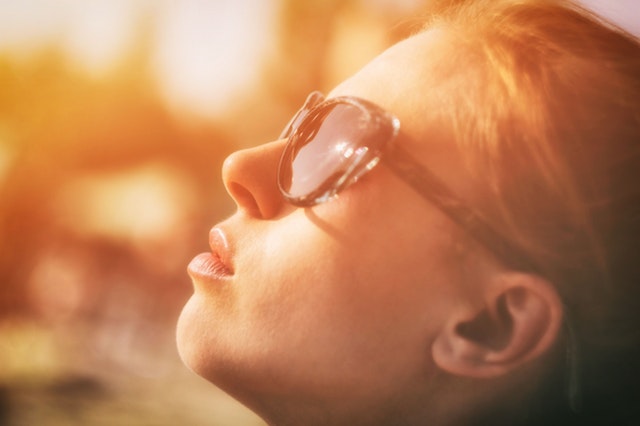From DIY beauty to home fragrance, essential oil use seems to be growing in popularity, especially as the natural and green beauty movement becomes more mainstream. I have recently discovered the delights of diffusing essential oils and using them for various beauty purposes. (You can even use them to clean your yoga mat!)
It’s important to practice essential oil safety, however. Although essential oils are all natural (the unadulterated ones, that is), natural does not equate to safe in many cases. Essential oils are highly concentrated plant extracts. Depending on its chemical composition, an essential oil may have the power to disinfect, soothe, or burn skin. Each oil is different, too. While one may be a magic elixir (hi, clary sage), another may be carcinogenic (like camphor). So let’s respect those tiny little bottles!
Must-follow tips for essential oil safety:
1. Seek quality essential oils. As you’re shopping for essential oils, you may come across the term “therapeutic grade.” While this sounds great, in many cases, it’s a marketing ploy. Essential oils are not regulated by the FDA, and there is no one official certificate awarded to safe and pure oils. I know this makes things more challenging, but it’s not all bad. Companies who describe their oils as “therapeutic grade” may not mean to be intentionally deceiving, and their oils may be just fine. You can make the process easier by finding a few companies that you trust. Edens Garden, Mountain Rose Herbs, DoTerra, and Aura Cacia tend to have good reputations for the quality of their oils. What you’re looking for is 100% pure oils packaged in small, dark bottles.
2. Be mindful of the chemical composition of oils. Oils high in aldehydes (like citronella) or phenols (like cinnamon leaf oil) may cause skin reactions and should not be used topically. Be sure to read about an oil before applying it to your skin.
3. Although inhalation of pure essential oils may be considered safe, inhalation of oils in water steam is something to be careful about. I love putting a few essential oils (like lavender or rose) in my steam facial. It really elevates the experience! I encourage you to use purified water in any steam treatment, however, in order to avoid coming into contact with creepy brain-eating bacteria. I’m sorry if that just killed the mood, but it’s something to take seriously. Although tap water is generally safe, occasionally it contains something unfriendly. While our stomachs are well-equipped to handle nasties (in many cases), our nasal passages are not.
4. Pregnant women should consult their doctors about using essential oils. A handful of essential oils are considered unsafe for use during pregnancy. These include but may not be limited to aniseed, basil, birch, camphor, hyssop, mugwort, parsley seed and leaf, pennyroyal, sage, tansy, tarragon, thuja thuja, wintergreen, and wormwood. Although essential oils and pregnancy represent a grey area in medical science, there is some concern that oils could pass through the placenta and harm the fetus. When in doubt, skip the essential oils, pregnant dumplings!
5. Young children and the elderly may be more sensitive to essential oils. Essential oils (that are deemed safe for the skin) should therefore be used in a very weak concentrations and tested on a small patch of skin.
6. When used in aromatherapy (like in a massage oil or skin treatment), essential oil should makeup only 1 to 5% of the blend. The exception to this guideline is neat application—directly applying essential oil to skin. For neat application, lavender may be directly applied to burns or tea tree oil to blemishes (if you’ve established that it doesn’t irritate your skin). Jasmine, rose, and lavender may be directly applied to the skin as perfume.
7. Do not ingest essential oils without medical supervision. Ingesting essential oils is not a DIY project.
What’s your favorite way to use essential oils?
Related: Natural Beauty – 7 Uses for Essential Oils
Get more like this–sign up for our newsletter for exclusive inspirational content!
Photo: Abi Porter via Flickr





